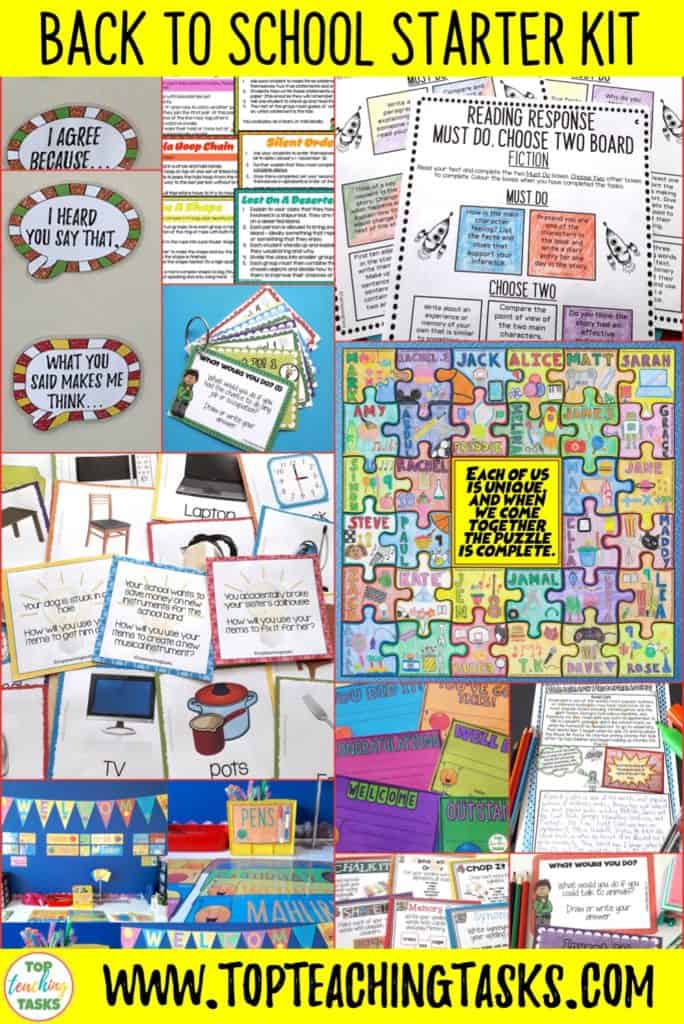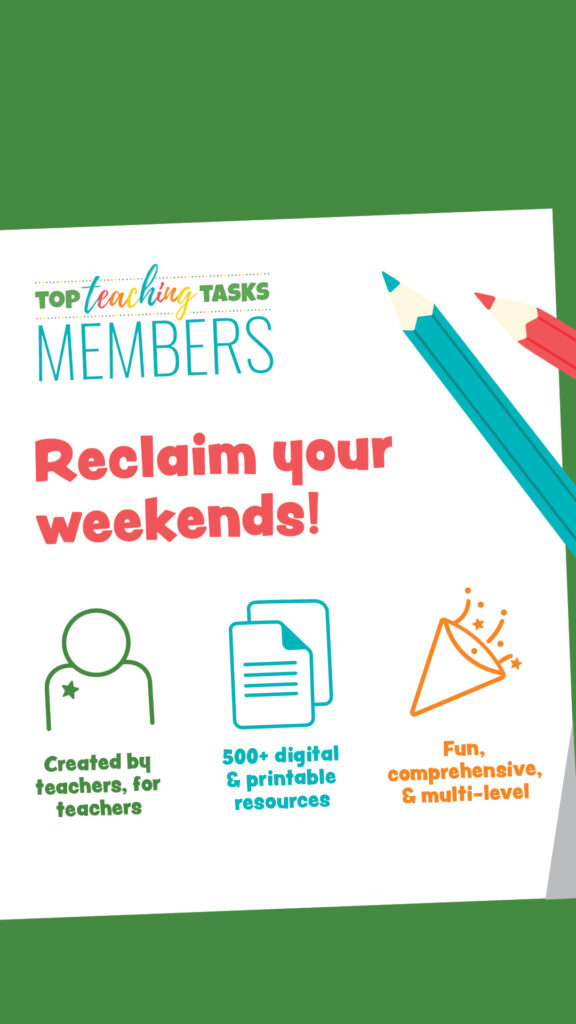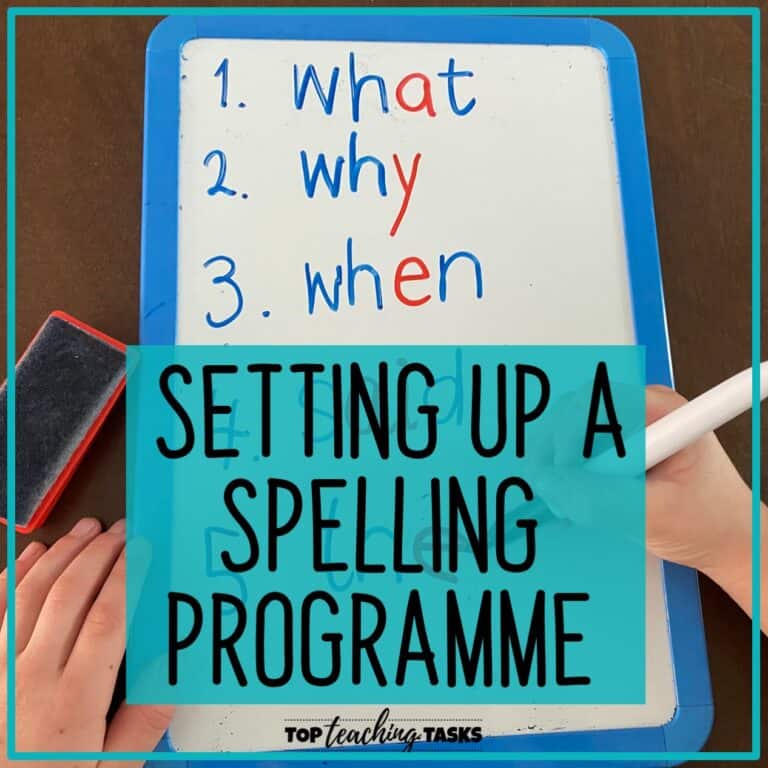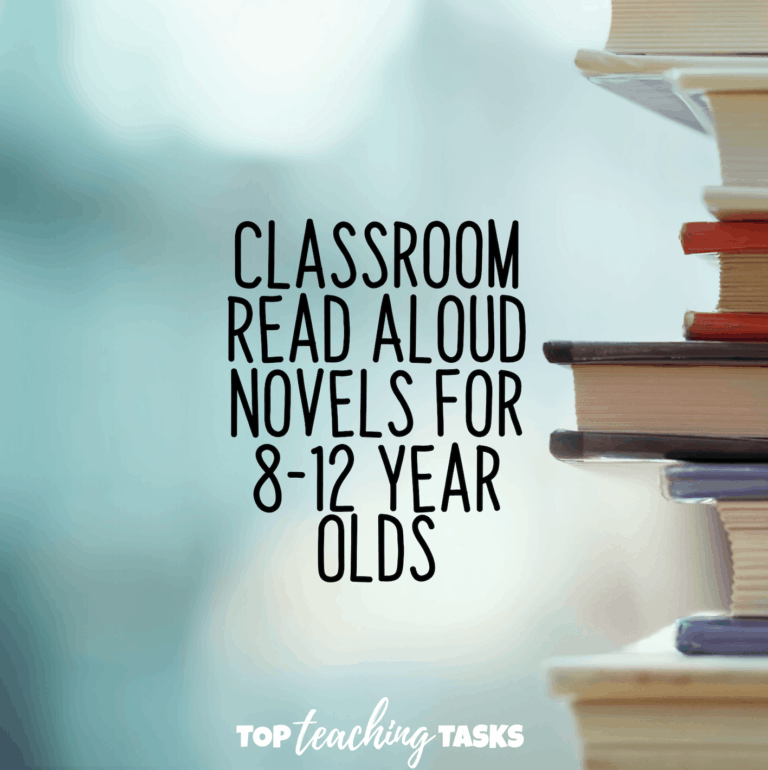7 Tips for Successful Parent-Teacher Communication

When I surveyed trainee teachers on topics they would like advice on, the resounding and clear winner was tips for Successful Parent-Teacher Communication. From memory, this topic wasn’t something covered when I was going through teacher training. However, there are so many benefits for parents being active in their child’s education, and clear communication will help this to occur!
In the hope that the following meme won’t become too much of a reality for you, I’ve put together a list of tips for successful parent-teacher communication.

1. Never underestimate the power of positive communication
As I explain further in my previous blog post The Positive Note Home, many parents can still remember the negative experiences they have had of school. They may also be used to hearing negative comments or receiving negative calls from previous teachers about their child. Switch this up by ensuring you are looking for ways to positively communicate with parents about their student. Imagine the sense of relief when a parent gets a note or a phone call and realises that you are praising their child! Win-win.
2. Establish clear boundaries from day one
Your time is valuable and there is no need to be replying to a parent’s email at 10.30 PM. They can find out what their kid’s Studyladder password is in the morning. If parents know when they can (and can’t) get ahold of you, and the best ways for them to do this (it may be text, email, popping into class, a phone call, sending a note with their child, and so on), then you can set clear boundaries around your time.
Consider communicating with parents around your availability during:
- Evenings
- The weekend
- Holidays
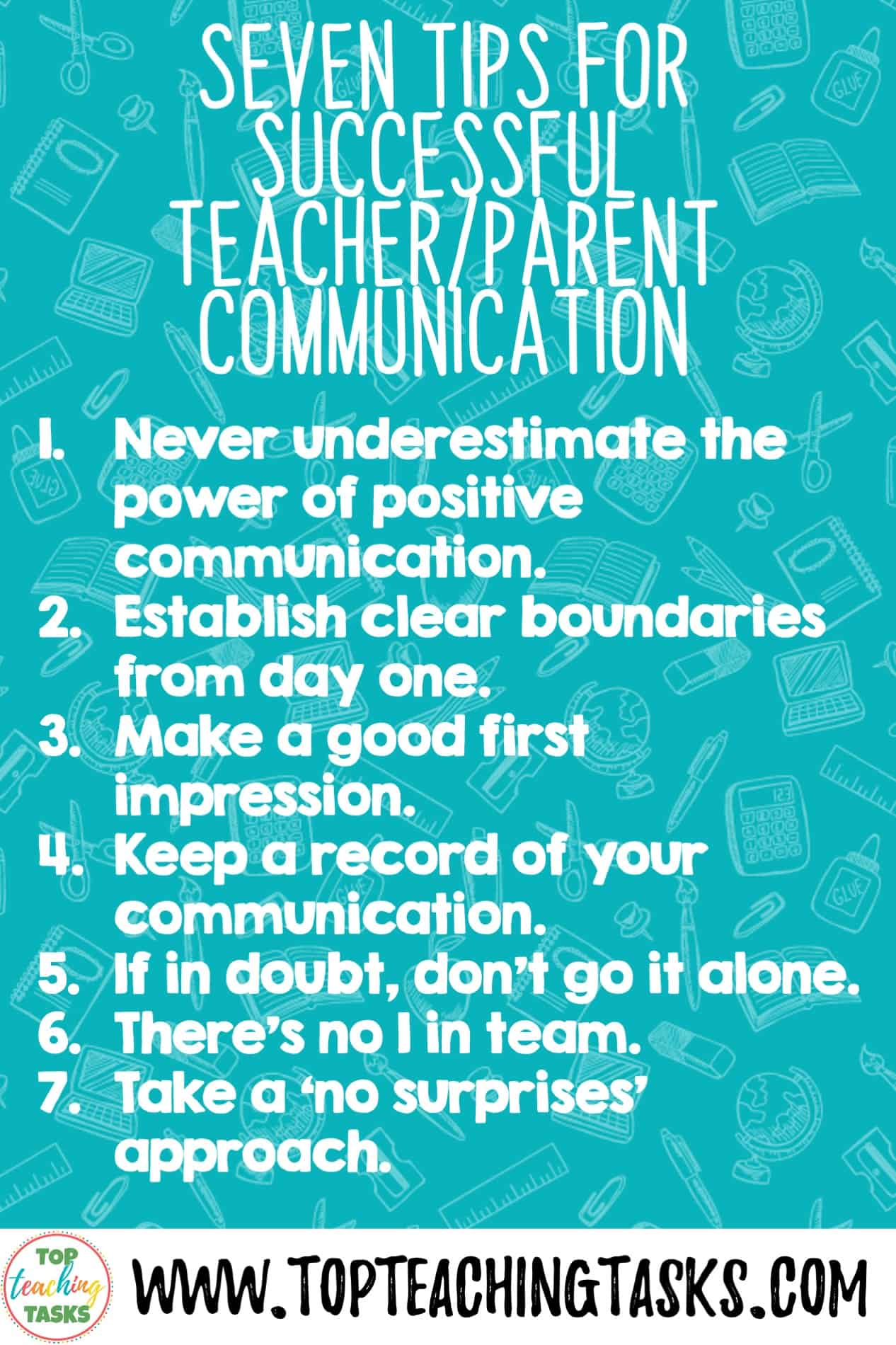
3. Make a good first impression
This seems simple but I cannot overstate how easy it can be to make a great first impression by showing a bit of effort at the beginning of the year. My tip is to write a short newsletter or personal letter to the parents of your class (not an individual letter, but one to all parents). Introduce yourself, share what you are excited about, and give them any reminders for the first week of the year.
“Oh, but our team is putting out a syndicate newsletter”. That’s lovely, but parents want to hear from you. Do this at the beginning of each term. It shows you are professional, that you are considerate of your parents, and that you value communicating with them.
Also, spell check that newsletter a couple of times. No one wants a bunch of spelling errors as their first impression.
4. Keep a record of your communication
Keeping a parent communication log is a must for keeping up to date with parent communication in a busy classroom. A parent communication log doesn’t need to be anything fancy: a simple page in your physical planner or Google Doc with a table will do. Record the date of the communication, the method of communication e.g. phone, email etc. and a brief explanation of what the communication was about.
No one wants their child to be the student who never gets the certificate, or never receives a positive phone call home. If you have a record of parent communication, you can quickly scan through and see who you may need to get in touch with.
Furthermore, if you have any “interesting” discussions with parents or experience any heat (a parent flying off the handle or giving you some rage, for example), take a few deep breaths once they have left and record this event, too. This will be useful when you go and talk to someone higher up… which brings me to my next tip.
5. If in doubt, don’t go it alone
Some parents are difficult. Fact. You do not need to deal with these parents alone. You have a senior management team who are there to help and support you. If you can sense that there is an issue with a particular parent (for any myriad of reasons) talk to your mentor teacher, team leader, or senior management team. Dealing with issues when they are small is much better than letting things fester.
If you feel like a parent is going to be difficult during a student-led conference/parent-teacher meeting, ask for your team leader or someone from the senior management team to sit in with you. This is not asking too much. You have a right to be supported. If nothing else, it is good to have a witness in these situations.
6. There’s no I in Team
The best way to tackle behaviour or learning challenges with parents is by taking a team approach. By coming at the situation with an attitude of “How can we work together to improve this situation” means that the parent is less likely to feel defensive or that they are being blamed for their child’s behaviour or achievement. A team approach helps parents to feel like “we’re all in this together” and that they have your support, and that of the school. If this is the case, their engagement level in any processes that follow will likely be higher.
7. Take a “No Surprises” Approach
Get in early if there are any possible issues – surprises suck (I speak from experience as a parent on this one!). When a parent sits down for a meeting with you or receives their child’s report card at the end of the year, there should not be any major surprises. If you think a student has a learning need or would benefit from extra support, do not leave this for a suggestion at the end of the year. Deal with that issue as soon as possible – be proactive and avoid surprises.
My fourth point, regarding recording parent communication, links nicely with this one, too. If you have recorded your chats and other communication with parents throughout the year, you will have evidence available if a parent was ever to say, “Well this is the first I have heard about this.”
So there you have it folks, my seven tips for Successful Parent-Teacher Communication. Do you have any tips that you could add to this list? Please share in the comments so we can all benefit from your experience and wisdom!
Back to School Starter Kit
Our Back to School Starter Kit contains everything you need to get your classroom set up and ready for day one. This resource includes classroom decor and display materials, literacy and social studies activities, early finishers and team building activities, and more!
Put your feet up knowing you are ready for day one! You’ll also save with our generous discount (25% off!). See more here.
See more of our Back to School Resources
Click here to see more of our Back to School range.
See more from our beginning teacher series
Are you a part of our membership yet?
Click here to learn more about our awesome membership!
Onwards and upwards,

